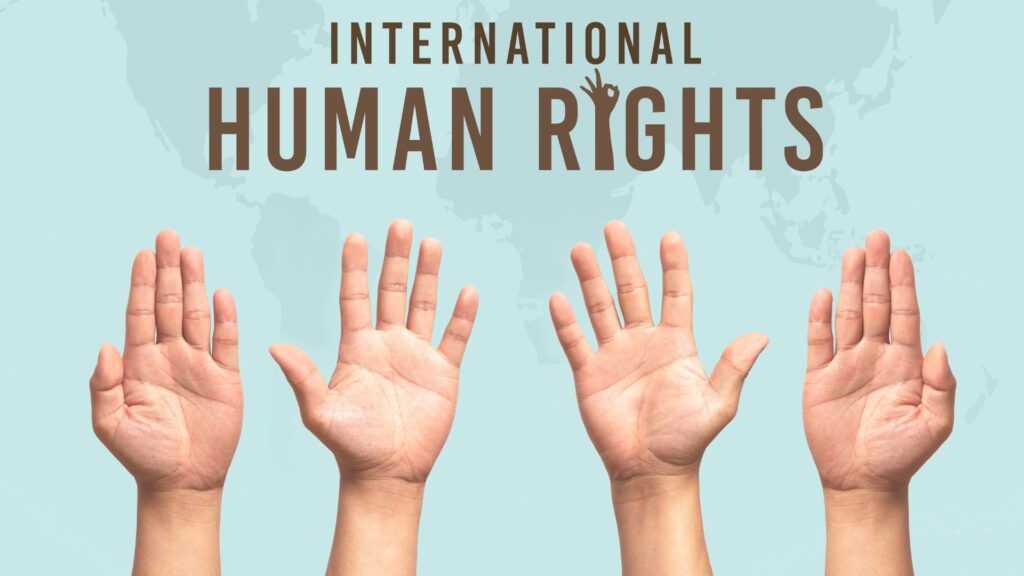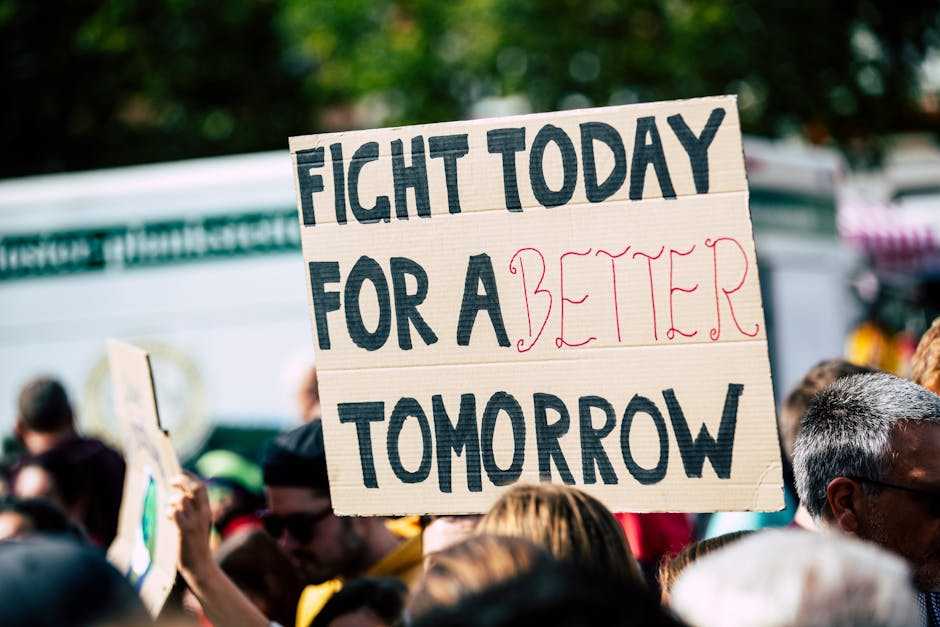Keeping up with the latest developments in international human rights is crucial in our interconnected world. As I delve into the recent updates on human rights issues globally, it’s evident that staying informed is key to fostering a more just and equitable society. From advancements in protecting vulnerable populations to challenges faced by activists, this article explores the dynamic landscape of human rights on a global scale.
I’ll be shedding light on the evolving trends and pressing concerns that impact human rights across borders. Understanding these updates not only broadens our perspective but also empowers us to advocate for meaningful change. Join me in uncovering the significant strides and persistent struggles that shape the international human rights agenda.
Overview of International Human Rights Updates
Exploring international human rights updates is crucial in our interconnected world. Recent advancements in protecting vulnerable populations and the challenges faced by activists underscore the dynamic nature of global human rights issues. Understanding evolving trends and pressing concerns that transcend borders is essential for advocating for meaningful change. Delving into the progress made and ongoing struggles shaping the international human rights agenda provides valuable insights for informed advocacy.
Key Developments in Human Rights
Staying informed about international human rights updates is crucial in our interconnected world. Let’s delve into some key areas that shape the landscape of human rights advocacy.
Legal Reforms
Legal reforms play a pivotal role in advancing human rights protections globally. They establish the framework for upholding fundamental rights and ensuring accountability. Monitoring implementations and enforcing compliance are essential steps to guarantee that these reforms translate into tangible improvements for individuals and communities.
International Agreements
International agreements serve as cornerstones for promoting cooperation and solidarity among nations to protect human rights. Ratifying these agreements demonstrates a commitment to upholding shared values and norms on a global scale. Compliance mechanisms and reporting structures help monitor adherence and address violations effectively, fostering a culture of respect for human rights principles worldwide.
Notable Cases
Examining notable human rights cases sheds light on specific instances where violations have occurred, leading to significant legal and ethical implications. Analyzing these cases provides insights into the complexities of addressing human rights abuses, the role of legal systems in seeking justice, and the impact on individuals and communities. By understanding the nuances of these cases, we can advocate for systemic reforms and greater protections to prevent future violations.
Regional Perspectives
Americas
In the Americas, human rights initiatives continue to be a focal point in addressing societal challenges. Governments across the region are enhancing efforts to protect the rights of marginalized communities and uphold the principles of justice and equality. From legislative reforms to grassroots movements, the Americas demonstrate a diverse landscape of advocacy and activism aimed at safeguarding basic human rights. The commitment of various stakeholders to collaborate on regional human rights issues sets a positive precedent for fostering a culture of respect for fundamental freedoms. Key developments in the Americas underscore the importance of ongoing dialogue and cooperation to address human rights violations effectively.
Global Organizations and Initiatives
Exploring the realm of human rights advocacy on a global scale unveils the essential role played by international organizations and initiatives in advancing the protection of fundamental rights and fostering cooperation among nations. As I delve into the landscape of global human rights efforts, I uncover the vital contributions of key entities that spearhead initiatives promoting justice, equality, and accountability across borders.
- United Nations (UN)
As a cornerstone of international human rights governance, the United Nations stands at the forefront of promoting and protecting human rights worldwide. Through its specialized agencies, programs, and bodies such as the Human Rights Council and the Office of the High Commissioner for Human Rights, the UN plays a pivotal role in monitoring violations, advocating for human rights norms, and supporting countries in upholding their commitments under international treaties. - Amnesty International
Renowned for its unwavering commitment to defending human rights, Amnesty International operates as a global movement mobilizing individuals and communities to take action against injustices and abuses. By conducting research, generating awareness, and campaigning for change, Amnesty International contributes significantly to raising human rights awareness and holding governments and institutions accountable for their actions. - Human Rights Watch
A prominent international non-governmental organization, Human Rights Watch conducts in-depth investigations, exposes human rights abuses, and pushes for tangible reforms to protect individuals’ rights worldwide. With a focus on reporting on violations and advocating for justice, Human Rights Watch amplifies the voices of those facing oppression and works towards creating a world where fundamental freedoms are respected and upheld. - International Committee of the Red Cross (ICRC)
In conflict zones and humanitarian crises, the International Committee of the Red Cross plays a critical role in ensuring adherence to international humanitarian law and protecting the rights of civilians and vulnerable populations. Through its humanitarian interventions, advocacy efforts, and dialogue with conflicting parties, the ICRC upholds essential human rights principles and provides vital assistance to those in need. - Global Magnitsky Act
An important legislative tool in the realm of human rights advocacy, the Global Magnitsky Act enables the sanctioning of individuals and entities involved in serious human rights abuses or corruption. By imposing financial and travel restrictions on perpetrators, the Global Magnitsky Act serves as a deterrent against human rights violations and underscores the international community’s commitment to justice and accountability.
In navigating the intricate web of global human rights initiatives, these organizations and mechanisms play a crucial role in upholding the values of dignity, equality, and justice for all individuals, underscoring the ongoing commitment to safeguarding fundamental rights on a worldwide scale.
Future Implications
Exploring future implications of international human rights updates provides valuable insights into the direction of global advocacy efforts and the challenges that lie ahead. As the landscape of human rights continues to evolve, it is crucial to anticipate potential trends and developments that may shape the agenda in the coming years.
- Technological Advancements in Human Rights Monitoring
- Leveraging technology for human rights monitoring and documentation can enhance transparency and accountability.
- Tools like blockchain and artificial intelligence offer new possibilities for tracking violations and promoting accountability on a global scale.
- Organizations are increasingly utilizing digital platforms to amplify voices, gather evidence, and mobilize support for human rights causes.
- Emerging Issues in Human Rights
- Addressing emerging issues such as environmental rights, digital privacy, and algorithmic bias requires innovative approaches and cross-sector collaboration.
- These new frontiers in human rights activism demand agility and adaptability to ensure comprehensive protection for vulnerable populations.
- Role of Youth in Human Rights Advocacy
- Empowering youth as catalysts for change in human rights advocacy is essential for sustaining momentum and driving transformative action.
- Youth-led movements harness the power of grassroots activism and social media to raise awareness, challenge existing norms, and effect systemic change.
- Global Solidarity and Collective Action
- Fostering global solidarity and collective action through multilateral cooperation and civil society engagement is critical for addressing transnational human rights challenges.
- International collaborations and partnerships play a pivotal role in advocating for universally recognized rights and supporting marginalized communities worldwide.
- Adapting Legal Frameworks to Evolving Human Rights Concerns
- Adapting legal frameworks to address evolving human rights concerns, such as digital rights and AI ethics, is imperative for ensuring relevance and efficacy in promoting and protecting fundamental freedoms.
- The intersection of law, technology, and human rights underscores the need for continuous updates and reforms to safeguard rights in the face of technological advancements and digital transformations.
Anticipating future implications of international human rights updates requires a proactive and forward-thinking approach to advocacy and policy development. By staying attuned to emerging trends and challenges in the human rights landscape, stakeholders can better navigate complexities and drive meaningful change on a global scale.



